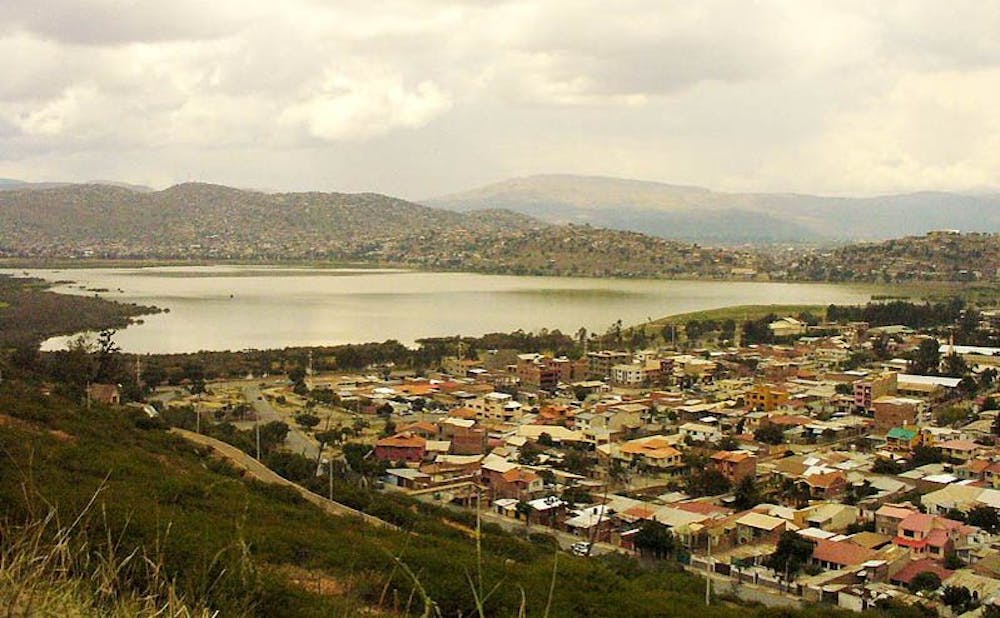DukeEngage just set a record for its shortest-running program of all time.
On Sept. 29, the service program announced two new sites for Summer 2018—Cape Verde and Bolivia. But less than two weeks later, organizers decided to cancel the Bolivia trip because of uncertainty surrounding the site location and housing arrangements for students.
“We were very excited about it, and really about a week ago as we looked at some of the details, we just felt like we needed another year of planning,” said Eric Mlyn, Peter Lange executive director of DukeEngage and assistant vice provost of civic engagement.
The Bolivia group project originally intended to have participants work with the organization Bridges to Prosperity to construct a suspension bridge near Cochabamba, Bolivia and would have been led by Kevin Caves, a clinical associate in the department of surgery, along with David Schaad, professor of the practice and associate chair in the department of civil and environmental engineering.
Caves explained that Bridges to Prosperity, which focuses on building pedestrian bridges in the developing world, is undergoing some reorganization and had not identified an exact location in Bolivia for the program to take place at yet. However, DukeEngage felt that it was important for these details to be in place by now in order to give students as much information as possible during the application process.
“We had communicated with DukeEngage, and they were trying to work with us, but it exceeded their risk tolerance level,” Schaad said.
Schaad leads the organization Duke Engineers for International Development out of the Pratt School of Engineering. DEID was planning to partner with DukeEngage on the project, and despite DukeEngage backing out, will still travel to Bolivia this summer to construct the bridge.
About 10 undergraduates are expected to go on the trip, along with a site coordinator and technical mentors who will probably be Duke faculty members. Schaad explained that participating students will likely apply for independent DukeEngage funding.
He noted that hopefully the project will take place next year if they can work out the details in time. This project's work toward constructing a bridge is especially important because mobility access is a significant issue in the developing world.
“People being able to access medical care, crops and schools becomes a significant issue,” Schaad said. “They’re crossing rivers that could be treacherous.”
Mlyn explained that he also hopes the program will be able to take place next year when DukeEngage has more clarity about the site conditions.
He noted that confusion among students about the cancellation was minimal. The DukeEngage office wrote to those who had already begun an application for the Bolivia project, informing them of the change. However, another press release was not sent out.
“I’m disappointed. I love working with Pratt, they bring a great sensibility to our work,” Mlyn said. “But I feel good about making a decision now rather than later.”
One new project will still be unveiled this year in Cape Verde, a nation of 10 volcanic islands off the coast of northwest Africa. The program will focus on helping at-risk youth in underserved communities on the island of Santiago by partnering with local nonprofits.
Led by Lamonte Aidoo, Andrew W. Mellon assistant professor of romance studies, students will volunteer at a summer program for children who have faced neglect, abuse, trauma and domestic violence, Mlyn explained. Participants will lead activities like painting, sports, crafts and dance in addition to helping prepare meals and teach English with the children.
The Cape Verde project aims to help students become global thinkers, understand different perspectives and communicate across cultures to promote social justice. In addition, it strives to teach participants how poverty and inequality intersect to impact a country’s families.
In total, 38 DukeEngage group programs will be offered this year, with 14 based in the U.S. and 24 taking place internationally. The programs in Ecuador and Kolkata, India will not take place this year, though they may return in the future. In addition, the Tanzania program focusing on literacy through photography that runs every other year is back on this summer.
About 420 students will be accepted for the group programs in total, and there are forty available slots for independent candidates, who design their own project with the help of a community partner.
Get The Chronicle straight to your inbox
Sign up for our weekly newsletter. Cancel at any time.

